

United Nations Security Council
Agenda: "Strengthening Regional Security Frameworks: Countering destabilization in the
Panama Nexus and terror insurgencies across Latin-America."
Freeze Date : February 04, 2031
Dear Diplomats,
It gives me immense pleasure to welcome you all to the 11th edition of the Welham Model United Nations Conference. It is a great honor for me to serve as the Chairperson of the United Nations Security Council this year. At the helm of this year’s UNSC, assisting me in this endeavor are Ahan Sparsh as the Vice Chairperson; Anagh Bajaj, Kushagra Gupta and Shubh Sachet Prakash as the Directors; and Angad Singh in the capacity of rapporteur.
This year, the United Nations Security Council convenes against the backdrop of an intensifying crisis in the Latin American region, marked by neo-colonial ambitions, resource monopolization, and insurgency-led resistance. The strategic control over the Panama Nexus has granted the United States an unprecedented hold over global trade and maritime security, particularly influencing Chinese foreign affairs.
In addition to the widespread hostilities by the United States, the resurgence of Guantanamo Bay as a detention facility has reignited international discourse. With Moscow now aligned with Washington, Beijing has distanced itself, reviving echoes of the Sino-Soviet split and injecting further volatility into the global security order. Meanwhile, the growing alignment between China and other communist nations has given a new spark against the ‘harbinger’ of democracy.
This Security Council session unfolds at a pivotal moment in history. The freeze date is February 4, 2031—New START Treaty’s expiration. While the geopolitical landscape has witnessed an unexpected thaw between the United States and Russia, culminating in a ceasefire agreement over Ukraine and an extension of the treaty five years prior, the present scenario suggests a fragile détente.
You are tasked not only with addressing the immediate crisis at hand but also preventing the conflagrations of tomorrow. Will the Council succumb to the anarchial measures of the greatest country in the world, or will it reclaim its mandate to uphold global stability and justice? That decision rests in your hands.
“The decisions you make today will shape the world of tomorrow. History does not remember those who stood idle at its most critical junctures. It is in your hands to ensure that you stand on the right side of it.”
Let the Negotiations begin!
Divij Gupta
Chairperson, United Nations Security Council

Divij Gupta
Chairperson

Ahan Sparsh
Vice Chairperson

Anagh Bajaj
Director

Shubh Sachet Prakash
Director

Kushagra Gupta
Director

Angad Singh
Rapporteur

United Nations General Assembly (DISEC)
Agenda: "Combating the Illicit Trade of Small Arms and Light Weapons to Enhance Global Security."
Dear Delegates,
In the last few years, the world has undergone a lot of changes, most of which have been detrimental to humanity, though we ourselves have caused them. Be it the innumerable conflicts and battles that rage on in different corners of the world, or the devastating effects of nature’s wrath that we have incurred, the problems are miles away from ceasing. Of course, to us it feels unnatural, because we have the comfort of safety and the shield of privilege to protect us. To us, it’s unreal but to an innocent kid running amongst the ruins of broken buildings while the sun beats down on him, it’s the reality.
So think of this platform as the voice of that innocent and recognise the weight and power your words hold in this negotiation, even if it is a simulation.
It is my utmost honor to see you in the capacity of Chairperson, United Nations General Assembly 1: Disarmament and International Security Council. Joining me in this privilege in the capacity of Vice Chairperson is Krishna Poddar, assisted by Yash Jalan and Aaryan Khanna as Directors, and Eshaan Tiwari and Aarav Bhimsaria in the capacity of Rapporteurs.
The illicit trade of small arms and light weapons, facilitated by growing technology, has only risen, proportional to the number of conflicts around the world. Be it trade under the guise of “transportation” or the passive trade of the materials which constitute these weapons, it lacks control and surveillance, which has only led to its growth. From small regional gang turf wars in South America to wars between countries in the Middle East and North Asia, these arms seem to have found their way everywhere.
As the United Nations’ disarmament body, it is your utmost prerogative and responsibility to treat the issue as important and discuss practical solutions through mutual respect and understanding. Remember that you represent nations, and that such an issue needs consensus from all parties involved.
As the Executive Board, we expect you to engage in meaningful dialogue and fruitful debate. For some of you, it will be your first Model United Nations Conference, while for some, it might be the last that you do. We encourage everyone to participate and to not be afraid of asking questions in case of queries. As delegates, you can expect us to be fair in our judgement and be aware that all decisions that we make will be in the best interest of all delegates and the committee at large.
If you have any further questions, feel free to reach out. Rest assured, the committee will be an unforgettable experience, and so will be the conference at large ;).
Best Wishes & Warmest Regards,
Samarth Agrawal
Chairperson - UNGA 1: DISEC

Samarth Agrawal
Chairperson

Krishna Poddar
Vice Chairperson

Aaryan Khanna
Director
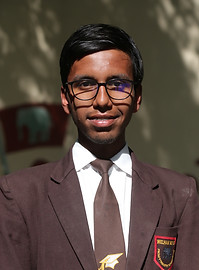
Yash Jalan
Director

Aarav Bhimsaria
Rapporteur

Eshaan Tiwari
Rapporteur
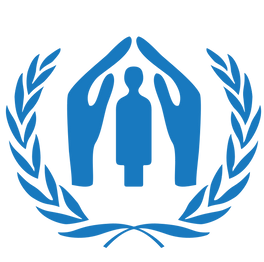
United Nations High Commissioner for Refugees
Agenda: "The European Refugee crises and the transpiring migration trends due to conflict zones with special emphasis on external actors and role of EU policies."
"The true measure of any society is how it treats its most vulnerable."
— Mahatma Gandhi
Dear Delegates,
In the narrative of our shared history, there are chapters not inked with pen, but stained with the red. The red of agony, the red of pain, and the red of displacement. In every tempest of turmoil, this red marks the lives of millions—those who flee, not out of choice, but out of necessity. They become homeless, nameless, and in the eyes of many, colorless. The refugee crisis is not a distant issue—it is the ongoing erosion of civil order that follows every wind of war our world has weathered.
These are not tales from another realm, but realities occurring in the very world you and I call home. The United Nations High Commissioner for Refugees (UNHCR) exists to safeguard the most vulnerable, to uphold the principles of humanity and dignity, and protect them through the power vested in us.
I am both proud and grateful for the opportunity to serve as the Chairperson of UNHCR this year. Allow me to share a bit about myself. I am a 17-year-old science student deeply passionate about art, design, and physics. I currently serve on the prefect body of the school as the Krishna House Prefect, and it has always been my intent to seek new experiences and understand diverse perspectives. Alongside me, we have Tejasva Dhandhania serving as the Vice Chairperson of the committee, Keshav Bhatia and Angad Khurana as Directors of the committee and Shrey Gupta in the capacity of the Rapporteur.
The agenda for the committee - “The European Refugee crises and the transpiring migration trends due to conflict zones with special emphasis on external actors and role of EU policies.”- picks up an extremely important global issue to discuss the refugee crisis in Europe and each stakeholder in great detail. All global crises lead their way to this one major crisis and it's your duty as delegates, to connect the dots and find a solution, keeping all complexities in mind. With well researched speeches, effective communication and deliberation, we can all make a small effort for a better future. We are not here just to observe history - we are here to change its course.
With this, I look forward to meeting everyone. In unity and resolve, let us strive to make a difference and forge ahead into a brighter future. Lastly, feel the weight of this crisis, not with despair, but with hope, and through resolve, make the world better for those who now see it as a dystopia.
Let resolve guide us, and action define us,
Cordially,
Vedant Singh
Chairperson - UNHCR

Vedant Singh
Chairperson

Tejasva Dhandhania
Vice Chairperson

Keshav Bhatia
Director

Angad Khurana
Director
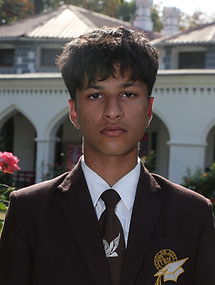
Shrey Gupta
Rapporteur


Agenda: “Deliberating upon the Global Economic Turmoil of the 2008 Great Economic Recession with Special Emphasis on Housing Stabilisation and the Overall Degradation of the Worldwide GDP.”
Freeze Date : March 8, 2009
It ain’t what you don't know that gets you into trouble. It’s what you know for sure that just ain't so.
- Mark Twain
Greetings Delegates,
It is with immense pleasure that I invite you to The Economic and Social Council (ECOSOC) for the Welham Boys’ School Model United Nations (WELMUN) 2025. I am Vishrut, and I am honored to serve as your Chairperson for ECOSOC. Currently, I also serve as the Cauvery House Captain and the Editor-in-Chief of the school’s flagship Hindi publication, Sankalp.
Joining me in the Executive Board is Vice-Chairperson Koustobh Gupta, Committee Director Rakshit Bajaj, and Council Rapporteurs Atharva Agarwal and Aarav Agarwal. Together, we are committed to making this conference an enriching experience for all.
ECOSOC is a cornerstone of the United Nations system, tasked with addressing global socio-economic issues. In this session, we will delve into one of the most defining economic crises of the 21st century: the Global Financial Crisis of 2008. This crisis, born from deep flaws within the American financial system, left an indelible mark on economies worldwide.
The 2008 Global Financial Crisis resulted from a confluence of poor regulatory oversight, the proliferation of subprime mortgages, and complex financial products, which led to the bursting of the housing bubble in the United States. The collapse of major financial institutions triggered a global cascade, causing widespread currency devaluation, stock market crashes, and an economic recession that affected nations across the globe.
As delegates in the Economic and Social Council, you will explore the aftermath of this crisis and the international responses that followed. Your task is not only to understand the causes and impacts of the crisis but also to engage in diplomatic dialogue aimed at finding multilateral solutions. The session will challenge you to consider the perspectives of various stakeholders and approach problem-solving with a focus on diplomacy, cooperation, and mutual understanding.
As the Executive Board, we expect the highest level of diplomatic courtesy and
well-thought-out solutions that reflect comprehensive research and a nuanced understanding of the issue at hand. Please remember that this is a platform for internationalism and collaboration, and not a stage for excessive economic or legal jargon. We are here to learn together, and communication with us, both before and during the committee, is always encouraged.
If you have any questions or need further clarification, do not hesitate to reach out via email. We look forward to seeing you all at WELMUN and expect a fruitful, engaging debate.
Cordially,
Vishrut Khanna
Chairperson, ECOSOC WELMUN 2025
United Nations Economic and Social Council

Koustabh Gupta
Vice Chairperson
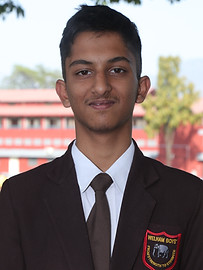
Rakshit Bajaj
Director

Aarav Agarwal
Rapporteur
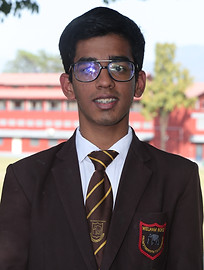
Atharva Agrawal
Rapporteur
_edit.png)
LOK SABHA
Agenda- “Assessing the Feasibility of ‘One Nation, One Election’ in India and its
Implications on Federal Autonomy.”
"Every revolution begins with the power of an idea. That idea must shake the foundations of the present"
— Jayaprakash Narayan
Chaos breeds destruction. But destruction? That’s just the prelude to something greater—Rebirth. India that is Bharat, a holding together nation has come through an intricate web of diversity, has always found strength in its contradictions. We are one, yet many. United, yet divided. A democracy, yet constantly redefining what that truly means.
It is with great honor that I, Atharva Agrawal in the capacity of the Lok Sabha Adhyaksha, welcome you to the 11th edition of the Welham Boys’ School Model United Nations. This is not just another committee. This is where the fate of the world’s largest democracy is debated, where ideologies collide, and where decisions that could shape the nation are forged. The challenge? To find unity in division, order in chaos, and solutions in the deadlock.
I am a student of political science, but more importantly, I am a student of power—how it’s built, how it’s lost, and how it’s reclaimed. From sleepless nights dissecting policies to the adrenaline of high-stakes debates, I've learned one thing: theory means nothing if you can’t make it matter. And that’s exactly what we’re here to do.
The agenda before us, “Assessing the Feasibility of ‘One Nation, One Election’ in India and its Implications on Federal Autonomy,” isn’t just a policy dilemma. It’s a test of vision, pragmatism, and courage. It’s about questioning whether the quest for efficiency undermines the essence of federalism or strengthens the nation’s core. It’s a puzzle and I expect you to solve it.
The nation is at a crossroad, and history will judge what happens next. Will you stand as mere spectators, or will you shape the course of future?
I will be presiding over this committee with Devvardhan Agrawal as my Deputy Speaker, Hasan Faisal, Hridaiveer Singh Bhati and Muaz Manzoor as the Directors, and Rudra Rastogi and Samarth Khirwal as the Scribes.
We are not here to merely simulate governance, we are here to question, to challenge, and to lead. Every speech you deliver, every motion you raise, every stand you take matters. This is your moment to rise beyond rhetoric and craft real change in thought and perspective.
Expecting fierce and fruitful debates.
If you have any questions or need further clarification, do not hesitate to reach out via email.
Atharva Agrawal
Speaker - Lok Sabha
Secretary-General

Atharva Agrawal
Speaker

Devvardhan Agarwal
Deputy Speaker

Rudra Rastogi
Director

Hasan Faisal
Director

Hridaiveer Bhati
Scribe

Muaz Manzoor
Director
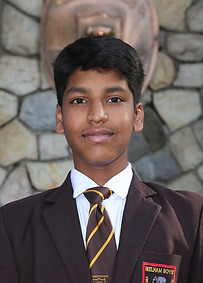
Samarth Khirwal
Scribe

Agenda: “Deliberating upon Rome’s future in light of the assassination of the Dictator Perpetuo, Julius Caesar.”
Freeze Date: March 16, 44 BCE
Note: This is a constant crisis committee.
Senators and custodians of Rome,
The time has come for all of you to prove your allegiance to your motherland and serve the dream that is Rome. After the unprecedented series of events that have taken place over the last few days, culminating in the assassination of the consul and Dictator Perpetuo, Rome now finds itself in an immensely vulnerable state. The power gap yearns to be filled, and it is now up to the Senate to decide the future of Roman leadership.
Before that, I would like to share a little about myself. My name is Shreyas, and I am a 12th-grade humanities student. I serve as the School Captain of Welham Boys’ School and as the President of the MUN Society. My interests outside of academics include public speaking, debating, and creative writing, and I plan to pursue economics in the future. In addition, I am a passionate squash player, having won medals at both the IPSC and state levels. In the committee, I will be assisted by Tanveer Singh Madan as the Vice-Chairperson, and Daksh Gupta and Adhyayan Gupta as the Directors, along with Vihaan Goel and Agastya Gupta as the Rapporteurs.
Following the successful assassination of Julius Caesar by the Liberatores, the Senate now faces the social, political, and military repercussions that this event has unleashed. Octavius has returned to Rome, seeking to avenge his great-uncle’s death and being present at the reading of Caesar’s will. The Populares and the Optimates both hold conflicting views on what the future of the Roman political system should look like, given their differing ideologies. The loyalty of the legions remains uncertain, with uprisings in the provinces looming due to the weakened political state. Chaos and the threat of anarchy now follow, which the Senate must suppress before it is too late.
A meeting of the Senate has now been called upon on the 16th of March–– a day after the assassination—— at the Curia of Pompey. The Senate must act not only to solve internal strife, but also to protect the large expanses of territories that Caesar had conquered. Meanwhile, important questions will have to be answered: What will be the fate of Caesar’s assassins? Who or what is to lead Rome now? How can uprisings in the provinces be prevented? Hopefully, a fruitful debate and prompt action await us that can save humanity’s greatest achievement from falling into the trenches of anarchy and civil war. Senators, the fate of Rome now rests in your hands.
May the Ides of March herald the dawn of a new era in Rome’s storied history.
Anticipating bold and decisive action,
Shreyas Shah
Chairperson - The Roman Senate
The Roman Senate

Shreyas Shah
Chairperson

Tanveer Singh Madan
Vice Chairperson

Adhyayan Gupta
Director

Daksh Gupta
Director

Agastya Gupta
Scribe

Vihaan Goel
Scribe

International Press Corps
“Journalism is not a profession or a trade. It is a crusade for truth.” - Robert C. Maynard
Greetings, delegates.
I welcome you to the eleventh edition of the International Press Corps at the Welham Boys’ School Model United Nations. I am Athrv Ahuja, and am honoured to oversee you in the capacity of Editor-in-Chief. I am assisted by Chirag Bhargava and Arnav Aaditya as Senior Editors, Harshil Bhatia and Minarth Jalan as the Creative Editors, and Neiyl Sagar Vasishta and Jai Gagaliya in the capacity of Rapporteurs.
As the press, you’re at the forefront of all events. Use the medium that you hold in your
hands and your minds and paint the canvas of freedom and truth to support the people and report to the world what needs to be reported. As the ones who have the privilege and the weight of being the first to see everything that happens in the world, they report what not the world wants to hear but what it needs to.
The IPC is often underestimated, but let this serve as a reminder that your role is just as vital as that of any other delegate—if not more so. At WELMUN, we give you the liberty to present your thoughts in any form that you want. Write, take interviews, make caricatures, shoot videos; use your creativity to its maximum, and don’t let anything be an obstacle to your reporting.
As the Executive Board, we expect you to be engaged wholeheartedly in the committee
you’ve been allotted and be familiar with your assigned agenda. Don’t limit your research to the scope of the committee, for your existence itself lies beyond that. We will ensure to make it an enjoyable and novel experience for you, one that you will keep in mind forever. As delegates, you can expect us to be fair in our judgment and our decisions.
Use the resources at your disposal, and make it a worthwhile experience. Establish and sway public opinion, be alert, and keep up with the spirit of journalism. Feel free to email us at chair.ipc@welhamboys.org for further queries.
Regards, Athrv Ahuja
Editor-in-Chief, IPC

Arnav Aaditya
Senior Editor

Minarth Jalan
Creative Editor

Chiraag Bhargava
Senior Editor

Jai Gagaliya
Rapporteur

Harshil Bhatia
Creative Editor

Neiyl Vasishta
Rapporteur


